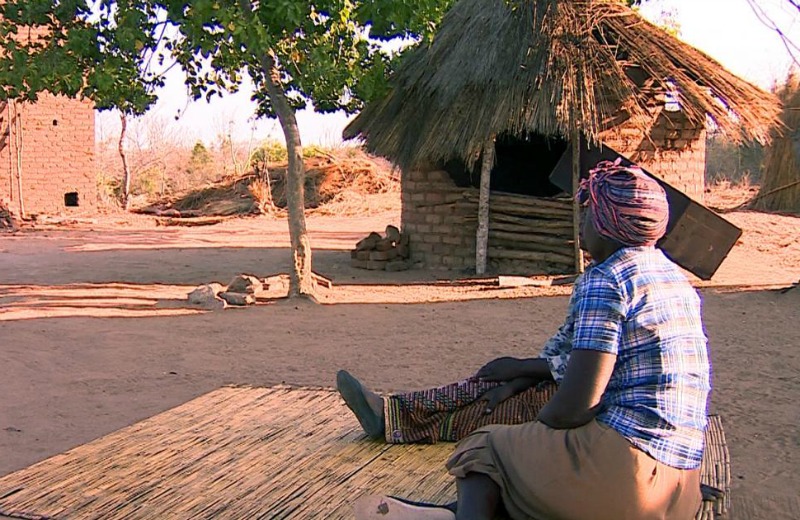I call him the headmaster of the streets. Now in his late 20s I first met Wellington some 15 years ago as an apprentice of street life in downtown Bulawayo.
Something, in the brief car-window conversations we had, always drew me closer to the tiny confidence-trickster.
Always, as if in some Nyaope stupor, in his cranky inaudible voice, Wellington had a way with words and way with me.
He did not come fawning and crawling with those annoyingly rehearsed “ce’ uncedo” verses of begging ascribed to the tongues of every street-child. No.
He pushed his dark face right into yours in that window with disarming confidence, a spontaneous pay-off line and a worldview so much deeper than your average beggar out there… “Life is so funny topi…
In another world, this could be me sitting behind that wheel, with a beautiful family and you out here begging, with bins for your grocery stores!” And break into his mocking signature chuckle and an infectious cracking laughter, as if @ God- before engaging.
I don’t give money to street kids, as a matter of considered policy but always, in three minutes of chatting, this little devil would take not only a few coins from me, but a piece of my heart too.
Always the jovial, happy-go-lucky street-kid, Wellington has mastered the nuts and bolts of street-life, graduated into inner city CBD street politics. He has matured into the de-facto leader of some of the most influential street gangs that our society has nurtured so astutely over the years.
From street kids, in all of 25 years, our streets are happily harbouring hordes of full-grown hoodlums, street fathers, street moms and entire street families – whole men and women, who in the full glare of elders, authorities, government — are fully groomed in squalor, in vice, in theft, in raw indecency and sunken in human indignity.
I was always convinced that society had so hardened Wellington’s heart to steel, that he, like so many children of the street was incapable of real emotion until Friday evening when I searched the streets, found him and broke the news of the death of his favourite “Unkel”, BroNqo WaMampela to him.
You see, my buddy, Nqobile, had a completely different and sincerely empathetic, interactionist perspective of street kids and street life, indeed as he did with so much more in life. Wellington adored the late Nqo because he knew Nqo loved him sincerely and never patronised him. He was in the habit of letting the boy into our sphere, they would sit in the car share a drink, play draft and Crazy 8 and laugh and quarrel like some college equals.
My heart swelled at the seams, not only to see tears of a deep sense of loss roll down the hardened chubby chicks of a street kid, but more when Wellington dipped in his under pocket, fished out $3 bond and insisted I should take the money to the family as his funeral contribution.
Not before throwing another jibe at life though,“You see topi, winter is coming, but God is our blanket.
You guys who live inside warm houses with loads of 2-in-one blankets die every day, but look at us street kids who sleep on cold, open pavements for years and warm ourselves on the tarmac like lizards… Street kids never die! ” . . . (breaks into laughter …..then cries!) Hiding my own tears from him, I tried to play Nqo, to chill out in the car with
Wellington, to share our mutual moment of loss and listen to the story of streets for one more night. I heard some gripping, some shocking, some riveting and many inspiring stories and testimonies of street-living as we sat and reminisced over the years, as Friday night wore on and the Seventh Day mourners serenaded our background to the life and times of Nqobile Richard Ndlovu.
One would expect very few street-kids to command any working knowledge or useful view of the world of internet, social media and its impact on human lives.
Interrogating me on the career and life passion of my late brother, Nqobile around information technology, Wellington is convinced that the lives and the livelihoods of a majority of street kids have improved significantly since the advent and scaling up of social media uptake.
How is that so, I asked. According to Wellington, the rise of Facebook, Instagram, WhatsApp and other social media platforms in the past decade or two has had the effect of drawing public attention to street squalor and poverty on the one hand, and “advertising ” public philanthropy on the other.
In other words, Wellington argues, the past years of “street drought” were cursed by low, rare or zero media publicity of the conditions endured by street kids and a corresponding absence of crowd applause and a bankruptcy of public validation of those that extended a helping hand.
Fast forward to Facebook boom in the past few years, the possibility and immediacy of any public show of philanthropy and the “likes” that it attracts has converted every camera and phone-wielding citizen into a compassionate giver and accomplished philanthropist.
Wellington tells me that “his teams” of beggars and street kids have graced more cameras and taken more pictures receiving goodies in their habitats of squalor with benevolent givers, in the past five years than Zimbabwe’s Big 5 in all the wildlife national parks combined.
“The rise of the camera has enabled us to benefit from the vanity of humanity, topi…” For a cool Instagram picture of themselves, showcasing some kindness to needy people, urban citizens are willing to pay a good incentive, to give their old wardrobe, distribute winter blankets and make food handouts to street kids. It would never happen without the cameras!
Welly insists that his 23 years experience with humans has taught him that people are motivated less by what an invisible God thinks, than they are by the jealousies,innuendos, praises and “likes” of validation by other humans around them.
He claims that street kids are involved in an undeclared auction of their conditions of want to the best-paying camera! As we bury his favourite ‘unkel’, Wellington sees a Mark Zuckerberg in the coffin.
As he reckons it is the likes of BraNqonza whose social media footprint changed the lives of street kids in several unsuspecting ways. Welly just posed a social science hypothesis.Was the Tsholotsho and Chimanimani response a tribal and politically motivated bias or a function of camera-philanthropy and social media fad?






